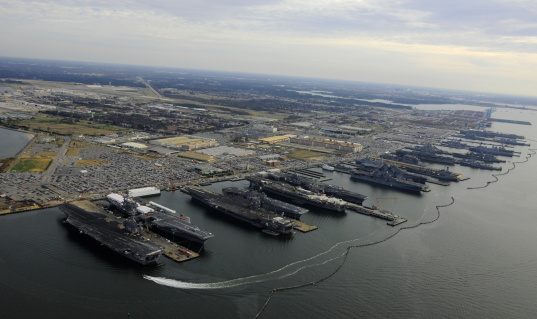
A new study concludes that climate change played a role in sparking the civil war in Syria, adding to the body of research showing a climate link to the unrest in the Middle East.
The study, published in the Proceedings of the National Academy of Sciences on March 2, finds that a multi-year drought between 2007 and 2010 led to “widespread crop failure,” forcing rural communities to migrate to urban centers en masse. As a result, Syrian cities became a tinderbox, and the subsequent political instability ignited into violence in 2011 at the onset of the Arab Spring. The Syrian civil war has raged since then.
Syria suffered through the worst drought on record leading up to the outbreak of violence, a drought that was made twice as likely because of climate change, the study says. Rising temperatures and increasingly dry weather will also make such conditions worse and more likely in the future.
The results of this study underscore the security threats that climate change can exacerbate. But climate denying politicians – who often position themselves as the biggest supporters of the military and guardians of America’s national security – are willfully ignoring these threats.
Read more: Can We Fix Climate Change With Technology?
“Democrats tell us they understand the world, but then they call climate change, not radical Islamic terrorism, the greatest threat to national security,” Republican Chairman Reince Priebus told a friendly audience at the Conservative Political Action Conference. “Look, I think we all care about our planet, but melting icebergs aren’t beheading Christians in the Middle East.” While Priebus’ comments won some plaudits, he is at odds with the assertions of the Pentagon.
The U.S. military has been acutely aware of the “climate security” threat for quite some time. Military planners have consistently referred to climate change as a “threat multiplier” – it can make existing problems worse, and can present new conflicts as well.
Admiral Samuel Locklear, head of the U.S. Pacific Command, told the Boston Globe in 2013 that climate change presented the biggest long-term national security threat. That earned him some pushback from Congress’ leading climate denier Senator James Inhofe during a committee hearing.
Jeff Goodell wrote an excellent article for Rolling Stone in February on how climate deniers undermine national security in multiple ways.
As he notes, it isn’t just foreign threats that will affect the military. Major military bases around the world are also at risk because of the effects of climate change. The Naval base in Norfolk, VA is dealing with frequent floods and hurricanes, and its ultimate long-term survival is in question because of rising sea levels. The same is true for the strategically important military base on the island of Diego Garcia in the Indian Ocean. Goodell reported that military officials are reluctant to discuss how they are dealing with the effects of climate change (even though they must) out in the open for fear that Congress will slash funding for climate-specific activities.
Read more: Anti-Fossil Fuel Movement Grows
And that fear is not unjustified. The Department of Defense has also prioritized reducing its demand for liquid fuels because of the human costs that stem from such a dependence. The need to refuel tanks, trucks, and planes puts soldiers at risk. When fuel convoys are sent out, soldiers must accompany those trucks to safeguard them, putting lives in danger. A 2009 Deloitte study found that one U.S. soldier was killed in Iraq and Afghanistan for every 24 fuel resupply convoys sent out. In response, the Pentagon has sought to develop biofuels to reduce its need for petroleum-based fuels, but climate deniers in Congress have repeatedly tried to ban such a pursuit. The fight is ostensibly over dollars, but no doubt the program has come under heightened scrutiny because it also fits neatly under the administration’s climate change agenda.
The threat of climate change will come from a variety of different directions, many of which will only grow worse with time. Droughts, floods, migration, disease, and severe storms will stretch the military’s resources, and strain its ability to deal with new missions.
The Pentagon continues to make the case however. The Navy’s Task Force on Energy posted the Rolling Stone article on its Facebook page, which no doubt irked the climate deniers in Congress.
This article originally appeared on Oilprice.com.
More from Oilprice.com:
More Must-Reads from TIME
- Inside Elon Musk’s War on Washington
- Meet the 2025 Women of the Year
- The Harsh Truth About Disability Inclusion
- Why Do More Young Adults Have Cancer?
- Colman Domingo Leads With Radical Love
- How to Get Better at Doing Things Alone
- Cecily Strong on Goober the Clown
- Column: The Rise of America’s Broligarchy
Contact us at letters@time.com